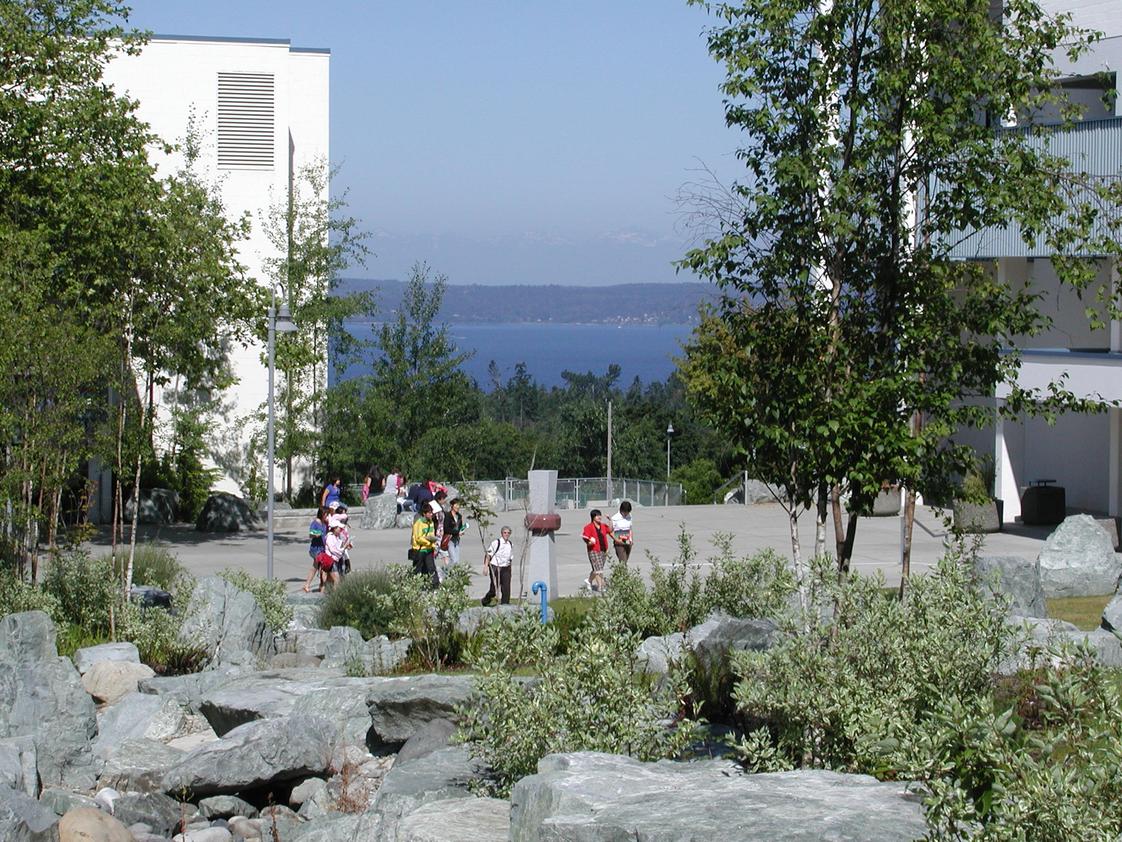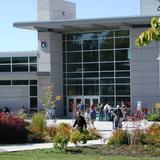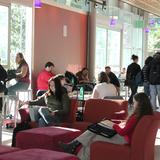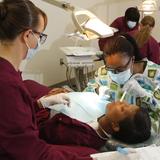- Highline Community College is nationally and internationally recognized as a premier community college, a reputation earned through the development of an institutional culture that values innovation, globalization of curriculum, and community participation. It is one of 34 community and technical colleges in the state of Washington.
School Highlights
Highline College serves 7,048 students (45% of students are full-time).
The college's student-teacher ratio of 13:1 is lower than the state community college average of 15:1.
Minority enrollment is 77% of the student body (majority Black and Hispanic), which is more than the state average of 56%.
Quick Facts (2026)
- Enrollment: 7,048 students
- In-state tuition: $4,000
- Out-state tuition: $4,401
- Student-teacher ratio: 13:1
- Minority enrollment: 77%
- Source: Integrated Postsecondary Education Data System (IPEDS)
Top Rankings
Highline College ranks among the top 20% of public schools in Washington for:
Category
Attribute
Affordability
Diversity
School Overview
The teacher population of 534 teachers has stayed relatively flat over five years.
Highline College
(WA) Community College Avg.
Carnegie Classification
Baccalaureate/Associate's Colleges: Associate's Dominant
Baccalaureate/Associate's Colleges: Associate's Dominant
Institution Level
Four or more years
Four or more years
Institution Control
Public
Public
Total Faculty
534 staff
353 staff
School Calendar
Student Body
The student population of Highline College has grown by 20% over five years.
The student-teacher ratio of 13:1 has decreased from 29:1 over five years.
The Highline College diversity score of 0.82 is more than the state average of 0.75. The school's diversity has stayed relatively flat over five years.
Total Enrollment
7,048 students
5,207 students
Student-Teacher Ratio
13:1
15:1
# Full-Time Students
3,161 students
2,028 students
# Part-Time Students
3,887 students
3,179 students
# Enrollment Undergraduate
704 students
494 students
# Full-Time Undergraduate Students
3,161 students
2,028 students
# Part-Time Undergraduate Students
3,887 students
3,179 students
Total Dormitory Capacity
160 students
140 students
% American Indian/Alaskan
n/a
1%
% Asian
19%
10%
% Hispanic
19%
17%
% Black
20%
7%
% White
23%
44%
% Hawaiian
1%
1%
% Two or more races
8%
8%
% Non Resident races
5%
3%
% Unknown races
5%
9%
Diversity Score
0.82
0.75
College Completion Rate (Students who graduate in less than 4 years)
32%
30%
College Completion Rate (Students who graduate in 4 years or more than 4 years)
40%
36%
Average Graduate Earnings (10 Years)
$38,300
$36,400
Tuition and Acceptance Rate
The public in-state tuition of $4,000 is less than the state average of $4,105. The in-state tuition has declined by 5% over four years.
The public out-state tuition of $4,401 is less than the state average of $7,359. The out-state tuition has declined by 6% over four years.
In-State Tuition Fees
$4,000
$4,105
Out-State Tuition Fees
$4,401
$7,359
Tuition Notes
3 qtrs, 15 credits
% Students Receiving Some Financial Aid
35%
58%
Median Debt for Graduates
$10,486
$11,794
Median Debt for Dropouts
$5,500
$6,192
Acceptance Rate
n/a
99%
Source: 2024 (or latest year available) Integrated Postsecondary Education Data System (IPEDS) , School Administrators
Frequently Asked Questions
How much does Highline College cost?
Highline College's tuition is approximately $4,000 for In-State students and $4,401 for Out-State students.
What is Highline College's ranking?
Highline College ranks among the top 20% of community college in Washington for: Least expensive tuition, Diversity in US community colleges and Average community college minority breakdown.
Recent Articles

Giving Back: How to Choose the Right Community College for Nursing, IT, or Business in 2026
Practical guidance for selecting the best community college for Nursing, IT, or Business in 2026, with expert tips on fit, outcomes, and career alignment.

How Community College Students Can Build a Transfer-Ready Portfolio for 2026
Learn how community college students can build a transfer-ready portfolio for 2026 admissions with coursework, projects, recommendations, and planning tips.

Community Colleges on the President’s Honor Roll for Service
How community colleges earn the President’s Honor Roll for Community Service, with 2026 examples, impact data, and student opportunities.


















